Bare toes curl at the tiled edge of the Olympic-sized pool. The racers bend slightly at the knees, hands poised in front of them with fingers pointed like knives, ready to slice into the water. The starter pistol fires – and they’re off, diving into the cool clear water. Legs scissoring. Arms scooping forward. It’s a rhythm honed by endless hours of practice under the watchful eyes of a swim coach, who’s standing poolside, heart racing in the excitement of the match.
More than half a million Americans swim competitively as members of USA Swimming. This doesn’t count all the teams and individuals practicing on their own at outdoor pools and recreation centers around the country.
There are many millions more Americans who swim, although some of them may not be able to swim well enough. A survey conducted for the Red Cross found that although 80 percent of Americans said they could swim, only 56 percent agreed they can perform all five of the basic skills that could save their life in the water.
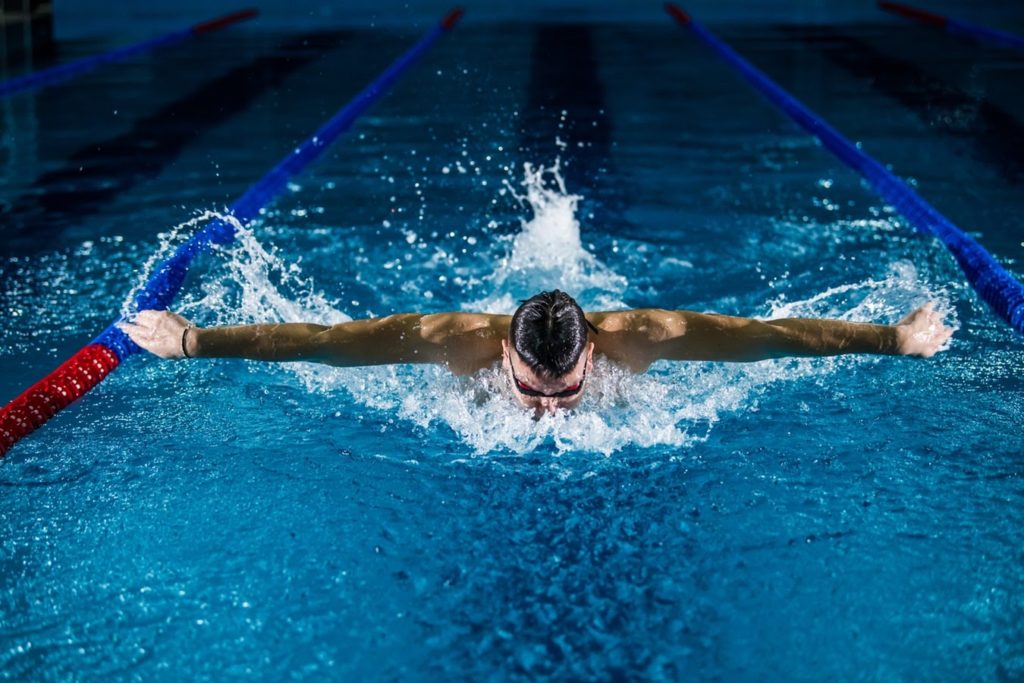
Swimming can be an exciting sport, a lifelong way to enjoy exercise and a vital life-saving skill. Coaches and instructors are needed to help swimmers in all three areas.
A low-impact non-contact sport, swimming is easy on the body. Anyone can enjoy this exercise throughout life. Swimming also unlocks endorphins that make you feel good so you emerge from the water with a post-workout high. Swimming works the entire body so it’s a terrific all-around workout.
Competitive swimming attracts committed athletes who invest time and money in private instruction to reach their full potential.
Ready to dive in? We’re going to swim through everything you need to know to become a private coach or instructor in this perennially popular sport.
In this article you’ll learn:
- How much money you can make as a private swimming instructor
- The required training and certifications
- Professional groups to join
- Employment Opportunities
- Finding swimmers to teach as a private coach
- Plus helpful tips for private swimming coaches.
How much money can you make?
Private swimming instructors earn on average $40 per hour with a range of $20 to $60 per hour. If your aspirations include swim championships and awards, as an exceptionally experienced coach, perhaps someone who has competed in the Olympics, may charge upwards of $100 per hour or half as much for a 30-minute session.
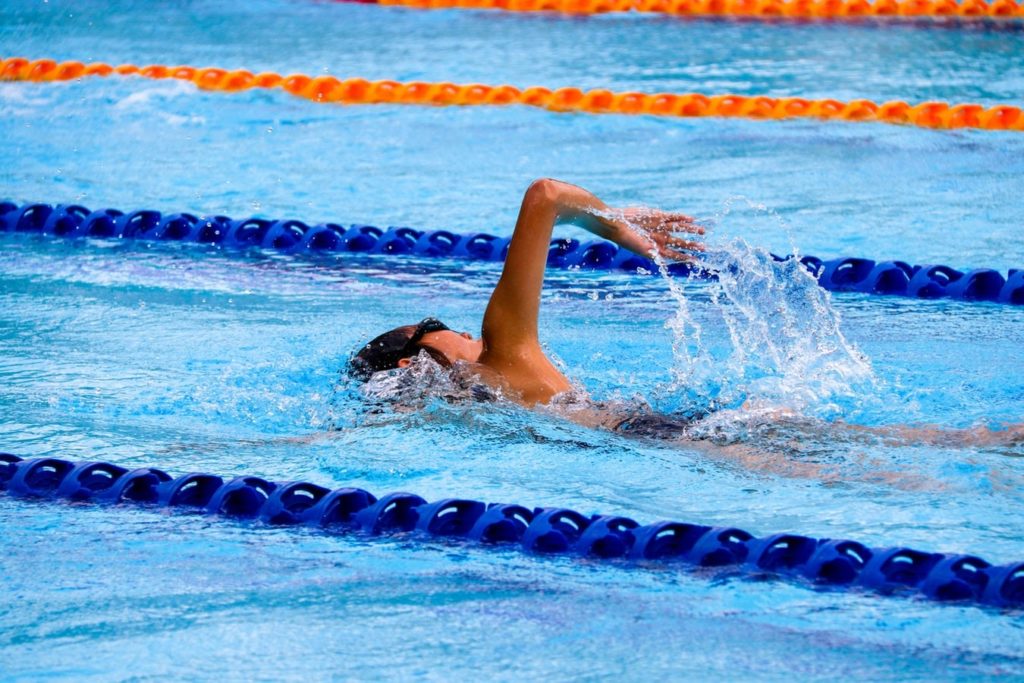
For specialty lessons you can charge even more. Diving and racking require their own special skills, just as there is demand for private instructors who can teach swimming to disabled individuals and those with special needs.
Unlike seasonal sports, swimming events run year-round, meaning you can work year-round. Competitive swimmers must train consistently to stay in top shape, otherwise they lose speed and strength. As a result, you can count on working every month of the year.
Training and Certification
The American Swimming Coaches Association is widely recognized as the premier organization for coaches seeking certification to train athletes in the sport. You’ve got to join to train; only members can be certified. Annual dues are $88 for US coaches or you can spend $880 for a lifetime membership.
Certification costs range from about $52 for the Level 1 Foundations of Coaching course up to $114 for the Certified Summer League Coach.
Level 1 is for high school, college, YMCA, summer club and international coaches. The course covers fundamentals of competitive swimming and proven methods of teaching.
Level 2 is known as “The Stroke School” and in this course you’ll learn “practical, useful tools to construct and to a lesser extent correct swimming strokes.”
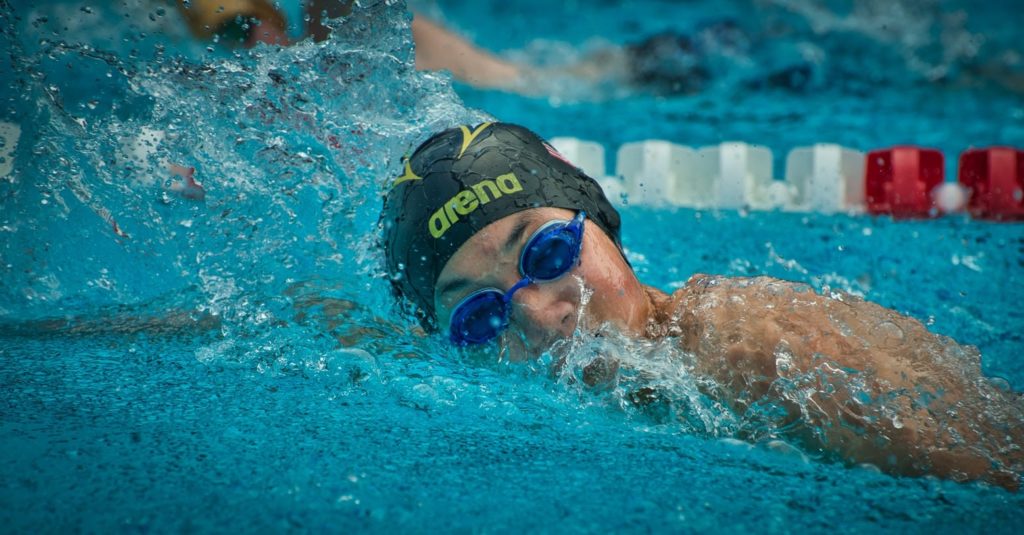
Level 3 involves planning and execution of training sessions for swimmers of all ages. Here you’ll learn how to create adaptive, progressive lesson plans that help students reach their training goals.
Level 4 is Leadership School where you’ll learn the operations of agencies and organizations that run the world of swimming. The course explains how coaches can integrate effectively within the larger organization, while covering the skills needed to make presentations both to student athletes and the swimming organizations that support them.
Level 5, Administrative School, is for instructors who aspire to be head coach of a swim program. Topics include budgeting, communications, fundraising, entering teams in competition, hosting swim meets, and working successfully with volunteers, parents, assistant coaches and boards of directors. “This course is designed to give new head coaches a tutorial on how to deal with administrative tasks–before they become administrative issues,” according to the course description. “There are sections devoted to the special needs of high school and college coaches.”
In addition to certification with the ASCA, to prepare thoroughly as a private swim coach and to maximize your chances for professional advancement, you’ll want to earn Water Safety Instructor (WSI) certification and CPR certification from the Red Cross. The WSI course can be taken online and costs about $120. Training in Adult CPR is currently $88. Adult and Pediatric CPR certification costs $108. Both are vital safety credentials for a swimming coach.
So what does training look like?
Here’s a video of an open water training session with a private coach teaching proper stroke technique.
This video offers a coach’s demonstration of drills to improve the freestyle stroke for more power and efficiency.
Finally, as with all coaches, before you can work with student athletes you’ll be required to complete and pass the SafeSport course, which teaches instructors how to identify abuse and misconduct, and to report the behavior. Here is an overview of what the course covers. The cost is $20.
Professional Groups to join
To get connected with Olympic swimmers and network with top coaches, join USA Swimming. The organization consists of Local Swimming Committees, which charge different membership dues. Find your local swimming committee here. USA Swimming oversees 2,800 teams across the country.
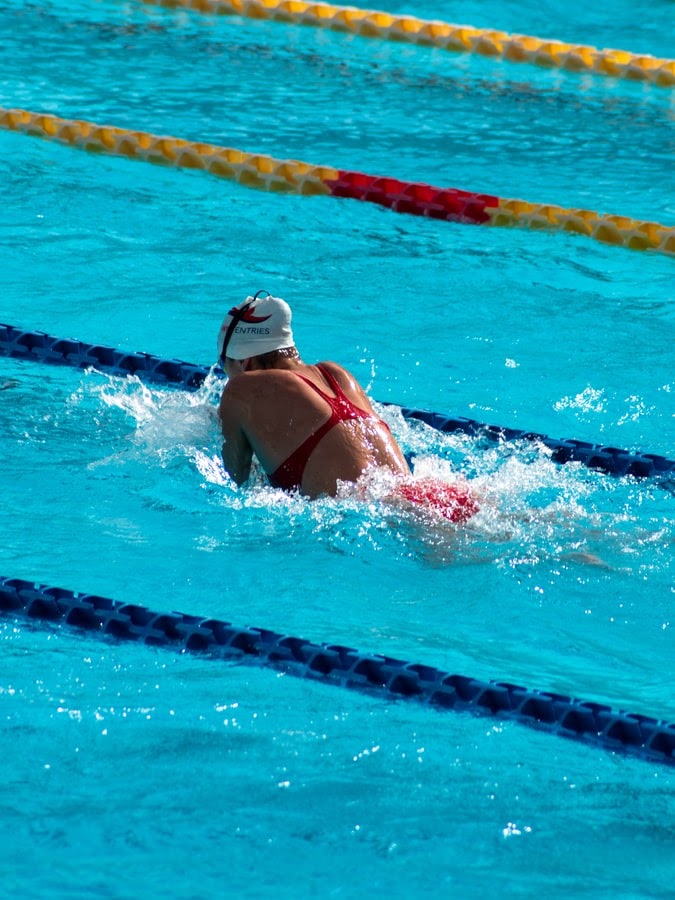
You’ll also need to maintain membership in The American Swimming Coaches Association to keep your certification active.
Employment
Use your membership in professional organizations to network with other swim coaches. As you build relationships, people are more likely to alert you about job opportunities they’ve learned about. You might be able to apply for a position before it’s even advertised.
Circulate your resume around local high schools and colleges that have swim teams. If there are no openings, offer to volunteer as a coaching assistant, which keeps you in the game while you continue looking for employment.
Social media can be a rich source of potential connections who can help you find work. There are many Facebook groups devoted to competitive swimming and swim coaching.
Finding Clients
Visit community recreation centers and local swim clubs to see if you can use their facilities for instruction. Holding training sessions during traditionally slower hours at the pool means you get to coach and the facility maintains steady business.
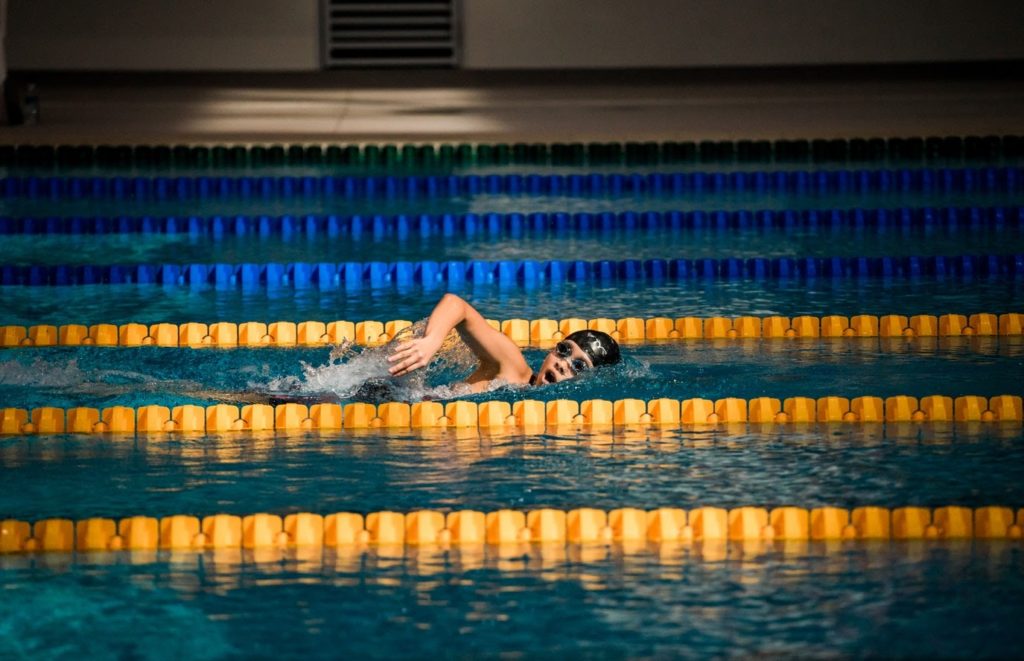
Pool equipment and supply stores and companies that cater to aquatic sports may let you put a flier on their bulletin board or in the window.
When you have a few students who’ve been working with you regularly for a while, ask them to post reviews of your coaching service on consumer sites such as Yelp. Free word-of-mouth advertising is some of the best marketing you can produce.
Good to know:
Physical therapist, swimmer and strength coach John Mullen offers these tips for new swim coaches.
Be Technical
Great coaches plan, guide, supervise, control and assess the correct preparation of their athletes. This requires a technical but flexible action plan.
Be motivating
Coaches deliver the right incentives for inspiring passion and improving performance in their students. An open and warm attitude is part of the successful coaches strategy for helping athletes reach their goals.
Be an Educator
As a swim coach, you are a trainer and mentor. Often you will become a confidante of student athletes who look to you as a great teacher who will give them the best information and training available.
Be Strategic
Great coaches recognize and are able to correct technical flaws just as they study rival teams to identify strengths and weaknesses. Great coaches know the big picture but also have mastery over all the little details that can make the difference between victory and losing a swim match.
If you enjoyed this article, check out some other PocketSuite.io content that can help you grow your career as a private swimming coach. Here’s a great place to start.
PocketSuite has thousands of business owners who all started where you are right now. Our community is always happy to help you ramp up, grow your client base, and achieve your income goals, both within the PocketSuite app and as part of our exclusive Facebook Community Group. PocketSuite’s vision is for any professional to be able to work for themselves and make a great living. It starts here. It starts with you. It starts today. Let’s get started, download PocketSuite now! Feel free to reach out with any questions (we’d love to hear from you)! Text us @ (415) 841-2300.





